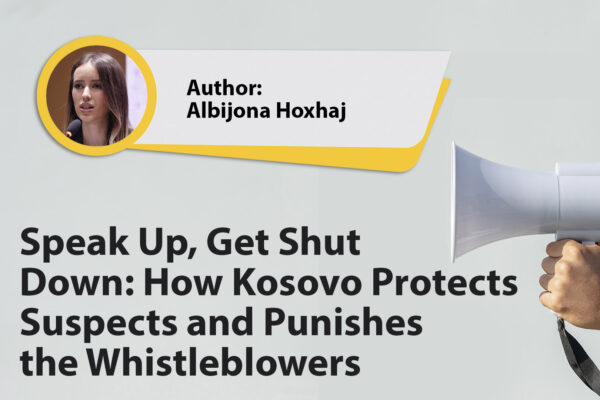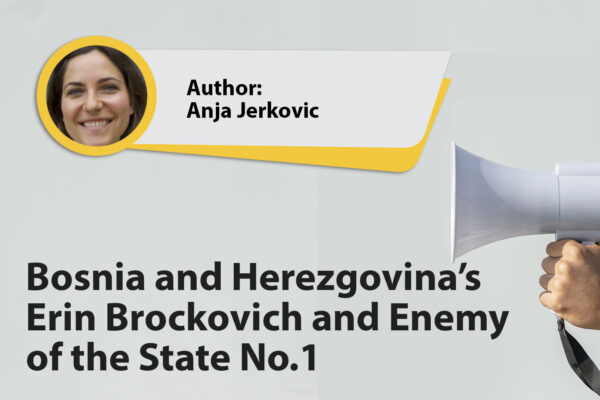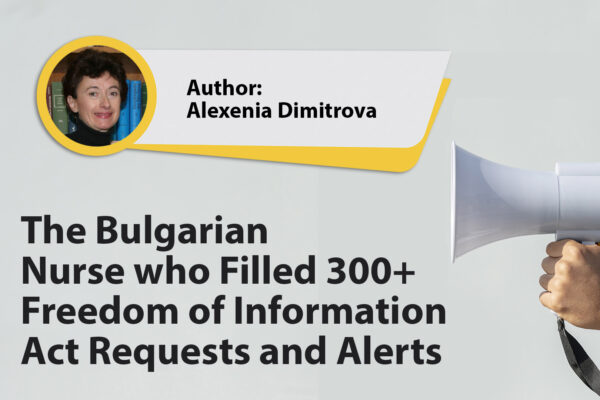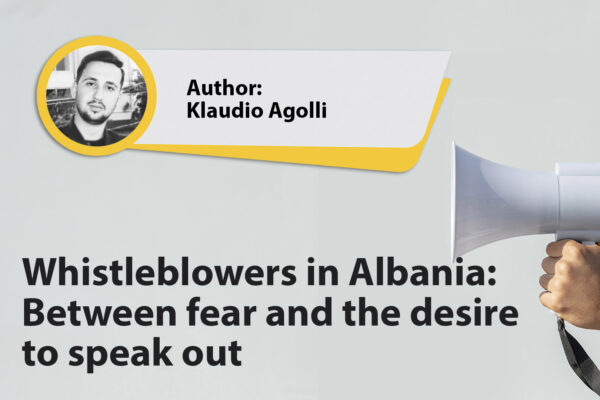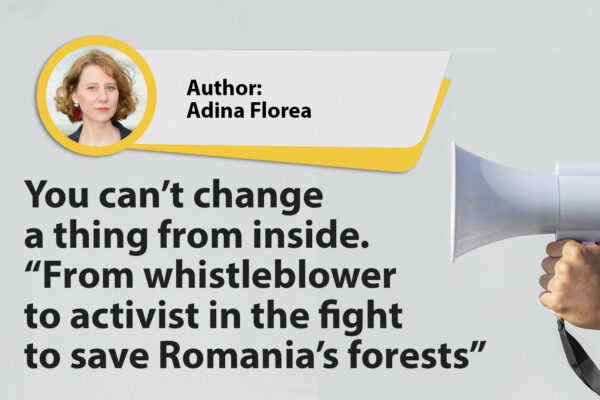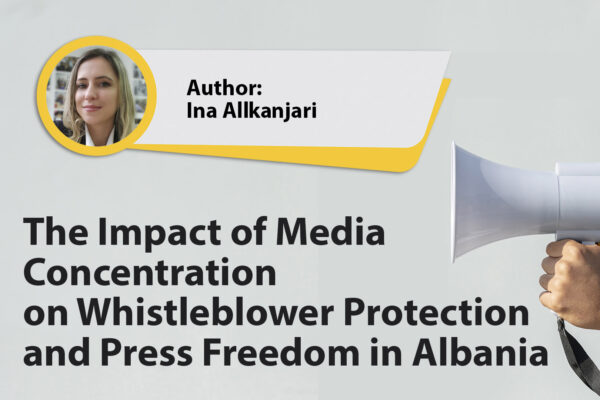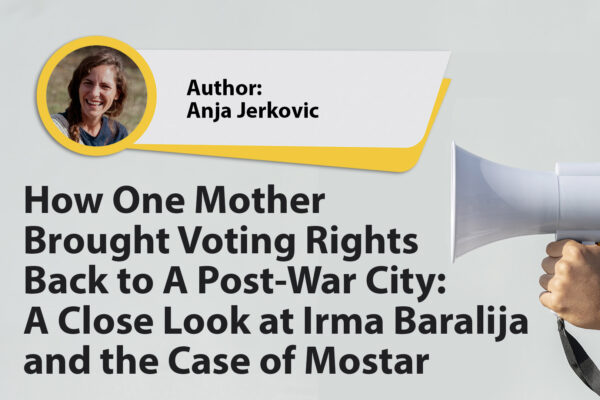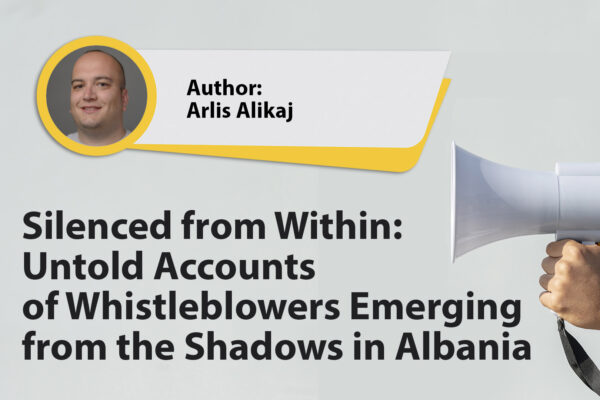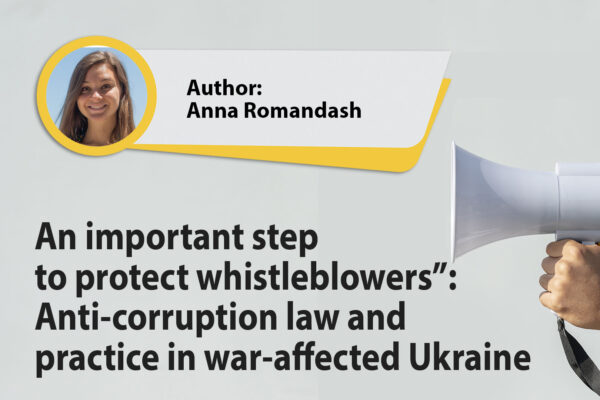Speak Up, Get Shut Down: How Kosovo Protects Suspects and Punishes the Whistleblowers
By Albijona HOXHAJ Sometimes, speaking up against injustices can cost you your job. Meanwhile, being suspected of abusing it can earn you a promotion. Ermal Kutllovci, an official at the Ministry of Industry, Entrepreneurship and Trade (MIET), was dismissed from his job after whistleblowing on a suspected scandal involving state
Bosnia and Herzegovina’s Erin Brockovich and Enemy of the State No.1
An Honest look at Irina Lovric’s Corruption Battle In Her Own Words, Then and Now. By Anja Jerkovic There is no ribbon to tie at the end of her story, but rather, the question of what comes next? Irina Lovric’s journey has it all–bravery, truth-telling, power games, nepotism at its
The Bulgarian Nurse who Filled 300+ Freedom of Information Act Requests and Alerts
By Alexenia Dimitrova „I am not fighting for myself. I am fighting for the people who work in the state owned Nuclear Power Plant (NPP) Kozloduy. These employees deserve to get a medical help, medical supervision and medical advice from independent medical facility, which is registered and controlled in accordance
Whistleblowers in Albania: Between fear and the desire to speak out
Albania – Out of 71 whistleblowing cases reported to ILDKPKI (2017–2022), only 10 have resulted in administrative measures. Meanwhile, 9 whistleblowers have faced retaliation, highlighting the challenges of effective protection. By Klaudio Agolli He is like most prison guards working in Albania’s correctional system—tall, with a slightly stern face and
You can’t change a thing from inside. “From whistleblower to activist in the fight to save Romania’s forests”
by Adina Florea Dan Turiga strides through a forest clearing now overtaken by weeds in Fetesti, a quiet village in northeastern Romania. It’s early October 2024, and the forest floor is blanketed in a quilt of orange and yellow leaves. A group of foreign journalists follows Dan Turiga, a forest
The Impact of Media Concentration on Whistleblower Protection and Press Freedom in Albania
by Ina Allkanjari Albania’s media is at a critical point, with growing worries about the concentration of media ownership, political control, and the risks faced by journalists and whistleblowers trying to expose corruption and wrongdoing. The Media Ownership Monitor, a study conducted on 2023 by BIRN (the Balkan Investigative Reporting
How One Mother Brought Voting Rights Back to A Post-War City: A Close Look at Irma Baralija and the Case of Mostar
by Anja Jerkovic Perhaps it’s not the typical format one might envision a whistleblower to be; 36, a recent Master’s graduate, a mother and a local activist. No, Irma Baralija wasn’t the most politically engaged person in Bosnia and Herzegovina at the time when she decided to sue the country
Silenced from Within: Untold Accounts of Whistleblowers Emerging from the Shadows in Albania
By Arlis Alikaj Pëllumb Gjini is the former mayor of the village of Steblevë in the north part of Shebenik-Jabllanica, the largest national park in Albania, an area recognized and protected by UNESCO and Albanian law. He helped organize local elders and stakeholders for the creation of the national park
Retaliation, Spyware and Blacklists: The Saga of Macedonian Whistleblower Jovan Jovcevski
By Goran Lefkov Jovan Jovcevski is a unique example of a whistleblower in the Balkans and Europe. He was a the administrative founder of the Operational Technical Agency (OTA), a public agency in North Macedonia that works to prevent abusive electronic surveillance of citizens. Jovcevski was responsible for legal wiretapping
An important step to protect whistleblowers”: Anti-corruption law and practice in war-affected Ukraine
Despite the ongoing Russian war, Ukrainian institutions remain focused on anti-corruption efforts. This is especially relevant given the large quantities of international aid and arms arriving into the country, and limitations that the martial law places on democratic processes– such as temporary closures of open data registries that helped prevent

